パルメニデス(紀元前520年頃-紀元前450年頃)
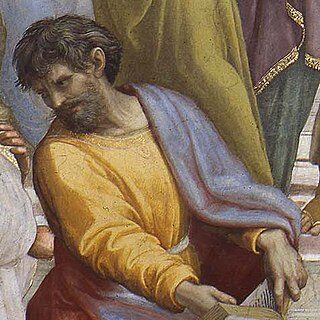
Parmenidēs
(アテナイの学堂)
生い立ち・生涯
パルメニデス: 存在と無からの探求者
古代ギリシャの哲学者パルメニデスは、前5世紀中頃に活躍した存在論の先駆者であり、その思想は西洋哲学の歴史において重要な位置を占める。
彼の生い立ちについては詳しいことはわからないが、紀元前5世紀にイタリアのエレアに生まれたとされる。
彼はエレア学派の創始者の一人とされ、その思想は古代ギリシャの哲学界に大きな影響を与えた。
パルメニデスの思想の中心には、存在と無の問題がある。
彼は存在の一元性を主張し、あるものが存在するということは、それが全ての面で一定であるということを意味するとした。
彼によれば、存在しないものは存在しないということであり、存在するものは永遠で変化しないという。
パルメニデスは、その思想を詩的な形式で表現した詩『存在について』を残している。
この詩では、彼の哲学的見解が神話的な物語として語られ、存在と無の対立が探求されている。
彼の哲学は論理的厳密さと詩的表現の統合によって特徴付けられ、その影響は後代の哲学者にも大きなインスピレーションを与えた。
彼の生涯の詳細は不明であるが、その思想はその後の哲学の発展に大きな影響を与えた。
彼の存在論は、現象の多様性の背後にある根源的な統一性を探求し、それまでの哲学に新しい視点を提供した。
パルメニデスの生涯は不明瞭な部分が多いが、彼の思想は古代ギリシャの哲学史において不朽の遺産となっている。
哲学・思想
パルメニデスの思想: 存在の一元性
古代ギリシャの哲学者パルメニデスは、存在論の先駆者として知られています。
彼の哲学は、存在と無の問題、そして存在の一元性に焦点を当てています。
彼の思想は、古代ギリシャの哲学の発展に大きな影響を与え、その後の哲学者たちに深いインスピレーションを与えました。
存在と無の問題: パルメニデスの中心的な思想の一つは、存在と無の問題です。
彼は存在の一元性を主張し、あるものが存在するということは、それが全ての面で一定であるということを意味するとしました。
存在しないものは存在しないということであり、存在するものは永遠で変化しないという彼の主張は、当時の哲学界に大きな衝撃を与えました。
詩的表現と論理的思考: パルメニデスは、彼の思想を詩的な形式で表現した詩『存在について』を残しています。
この詩では、彼の哲学が神話的な物語として語られ、存在と無の対立が探求されています。
彼は論理的な厳密さと詩的表現の統合に成功し、その独自のスタイルは後の哲学者たちにも大きな影響を与えました。
影響と遺産: パルメニデスの思想は、その後の哲学の発展に大きな影響を与えました。
彼の存在論は、現象の多様性の背後にある根源的な統一性を探求し、それまでの哲学に新しい視点を提供しました。
彼の思想はプラトンやアリストテレスを含む後の哲学者たちにも影響を与え、西洋哲学の重要な枠組みの一部となりました。
まとめ: パルメニデスの哲学は、存在と無の問題に焦点を当て、その存在論的な観点から、古代ギリシャの哲学史において重要な地位を占めています。
彼の論理的厳密さと詩的表現の統合は後代の哲学に大きな影響を与え、その思想は現代の哲学の議論においても重要な位置を占めています。
特徴
パルメニデスの特徴: 存在の一元性と詩的表現
古代ギリシャの哲学者パルメニデスの思想には、いくつかの特徴があります。
その中でも最も顕著なのは、存在の一元性と詩的表現の統合です。
存在の一元性: パルメニデスは存在の一元性を主張しました。
彼によれば、あるものが存在するということは、それが全ての面で一定であるということを意味します。
すなわち、存在するものは永遠で変化しないというのが彼の主張です。
この思想は、古代ギリシャの哲学において大きな転換点となりました。
それまでの哲学者たちは、世界の多様性や変化を強調してきましたが、パルメニデスはその根源にある不変の存在を強調しました。
詩的表現の統合: パルメニデスは、その哲学を詩的な形式で表現しました。
彼の詩『存在について』は、神話的な物語として存在と無の問題を探求するものです。
彼は論理的な厳密さと詩的表現の統合に成功しました。
この詩的な表現は、彼の思想をより生き生きとさせ、後の哲学者たちにも大きな影響を与えました。
影響と遺産: パルメニデスの思想は、その後の哲学に大きな影響を与えました。
彼の存在論的な観点は、プラトンやアリストテレスなど後の哲学者たちにも受け継がれ、その影響は西洋哲学の歴史において重要なものとなりました。
また、彼の詩的表現のスタイルは後代の哲学者たちにも模倣され、哲学の表現の幅を広げました。
まとめ: パルメニデスの特徴は、存在の一元性と詩的表現の統合にあります。
彼の哲学は古代ギリシャの哲学史において重要な地位を占め、その影響は現代の哲学にも及んでいます。
彼の思想は、存在の根源についての問い掛けや、詩的な表現の重要性を考える上で、今なお価値のあるものとして受け継がれています。
エピソード
パルメニデスの逸話: 驚異の旅
古代ギリシャの哲学者パルメニデスには、興味深い逸話が残されています。
その中でも有名なのは、彼の「驚異の旅」と呼ばれるものです。
ある日、パルメニデスは哲学的な探求の旅に出ることを決意しました。
彼は自らの思想を詩的な形式で表現した詩『存在について』を書き上げ、その内容に深く没頭していました。
しかし、彼はその思想が理解されることを願って、自らの詩を持って旅に出ることにしたのです。
パルメニデスは、イタリアのエレアを発ち、さまざまな地域を訪れました。
彼はその詩を抱え、人々と議論し、自らの思想を伝えようと努めました。
しかし、彼の思想は当時の一般的な信念とは大きく異なっており、理解されることはなかなかありませんでした。
彼の旅の中で、パルメニデスは多くの困難に直面しました。
彼の思想は当時の常識に挑戦するものであり、受け入れられることはまれでした。
しかし、彼は自らの信念を曲げることなく、真実を求める旅を続けました。
その後、パルメニデスは故郷に戻り、そこで静かな余生を送りました。
彼の思想は後世に影響を与え、古代ギリシャ哲学の中でも特に重要な位置を占めることとなりました。
この逸話は、パルメニデスが自らの思想を広めるために果敢に旅をした姿を象徴しています。
彼の哲学的な探求心と真理への執着は、後の哲学者たちに多くの示唆を与え、彼の逸話は今なお称賛され続けています。
パルメニデス:存在の不変性と真理の道―エレア学派の創始者の哲学とその影響
アナクサゴラス(紀元前500年頃 – 紀元前428年頃)

Anaxagoras
アテネ大学のフレスコ画
生い立ち・生涯
アナクサゴラス: 古代ギリシャの知恵の巨人
古代ギリシャの哲学者であり、自然哲学の先駆者であるアナクサゴラスは、その生涯と思想で古代の知恵の巨人として知られています。
生い立ちと教育: アナクサゴラスは紀元前500年ごろ、クラズメネの小さな町で生まれました。
彼はアテネで教育を受け、特に自然科学や哲学に関心を持ちました。
その後、アナクサゴラスは自らの知識を広めるために旅に出ることを決意し、エジプトやペルシア、そしてイオニア地方を訪れました。
この旅が彼の後の哲学的な発展に大きな影響を与えました。
アテネでの活動: アナクサゴラスはアテネに戻り、その知識と教えを広めました。
彼のアテネでの活動は、科学や哲学の分野で注目を集めました。
彼は自然の法則や宇宙の秩序についての著作を執筆し、その知識を共有するために公開講義を行いました。
また、彼はアテネで政治的な活動にも関与しましたが、その後の政治的な対立によってアテネを離れることになります。
エジプトでの経験: アナクサゴラスはエジプトで多くの学びを得ました。
彼はエジプトの宗教や天文学に深い興味を持ち、ピタゴラスやプラトンといった後の哲学者にも影響を与えました。
特に、エジプトでの天文学の研究は、後に彼の宇宙論に影響を与えることになります。
晩年と没後の影響: アナクサゴラスの晩年は、彼の知識と哲学的な洞察が広く認められる時期でした。
彼の教えは多くの弟子によって受け継がれ、その思想は後の哲学者や科学者に大きな影響を与えました。
彼の没後も、彼の著作や教えは古代ギリシャの知識の中心的な要素として尊重され続けました。
アナクサゴラスは、その生涯を通じて知識と真理を追求し、自然の秩序と宇宙の謎に挑戦し続けました。
彼の哲学は、古代ギリシャの知識の黎明期において重要な役割を果たし、後の時代の哲学や科学の発展に多大な影響を与えました。
哲学・思想
アナクサゴラス: 宇宙の秩序と無限の精神
アナクサゴラスは古代ギリシャの哲学者であり、自然哲学の先駆者の一人として知られています。
彼の思想は、物質の根源と宇宙の秩序についての深い洞察に基づいています。
無限の精神と宇宙の秩序: アナクサゴラスは、宇宙の根源として無限の精神(ヌース)を提唱しました。
彼はこの無限の精神が宇宙の秩序と法則を司る根本的な原理であると考えました。
彼の宇宙論は、混沌から秩序への移行を説明し、万物の根源としての無限の精神の存在を強調しました。
万物の原子論: アナクサゴラスは、万物は原子(ホモイオメリー)から構成されていると考えました。
彼は物質の根源として無限に細分化できる原子を提唱し、それらが永遠に変化する世界の基礎を形成すると信じました。
彼の原子論は、後の原子論の発展に大きな影響を与えました。
自然の法則と必然性: アナクサゴラスは自然の法則と必然性の概念を重視しました。
彼は物事の運命や出来事の背後にある客観的な法則を信じ、それらが宇宙の秩序と一致すると考えました。
彼の思想は人間の意志や干渉よりも自然の必然性に従うべきであると主張しました。
神と宇宙: アナクサゴラスは神や神話的な要素には懐疑的でした。
彼は宇宙の秩序を説明するために神の存在を必要とせず、物理的な法則や原理によって説明できると考えました。
彼の思想は、合理的で科学的なアプローチを重視し、神話的な解釈を超えた自然の理解を追求しました。
影響と遺産: アナクサゴラスの思想は後の哲学者や科学者に大きな影響を与えました。
彼の宇宙論や原子論は、古代ギリシャの哲学の基礎を築き、その後の哲学や自然科学の発展に影響を与えました。
彼の思想は、現代の科学的思考や宇宙観にも多大な影響を与えています。
まとめ: アナクサゴラスの哲学は、宇宙の秩序と法則についての深い理解と、科学的なアプローチに基づく自然の解釈に焦点を当てています。
彼の無限の精神や原子論の概念は、古代ギリシャの哲学の重要な遺産として、後の時代に受け継がれました。
特徴
アナクサゴラス: 宇宙の秩序と知の探求
アナクサゴラスは古代ギリシャの哲学者であり、自然哲学の先駆者の一人です。
彼の思想は、その時代において大胆かつ革新的であり、以下にその特徴を探ってみましょう。
自然の秩序への関心: アナクサゴラスは自然界の秩序に深い関心を抱きました。
彼は宇宙に秩序があり、その秩序は物理的な原理によって説明されると考えました。
彼はこの秩序を理解するために、観察と論理的な推論を用いました。
無限の精神(ヌース)の概念: アナクサゴラスは、宇宙の根源として無限の精神(ヌース)を提唱しました。
この無限の精神は宇宙の秩序を司り、物質界の動きや変化を調整する根本的な原理であると考えられました。
彼はこれを宇宙の神秘的な秩序の源泉として捉えました。
原子論の先駆者: アナクサゴラスは、万物は細かい粒子である原子から構成されていると考えました。
彼の原子論は、物質が永遠に変化し続けるという観念を含んでおり、後の原子論の発展に大きな影響を与えました。
自然の法則と必然性: アナクサゴラスは、自然の法則と必然性の概念を重視しました。
彼は物事の運命や出来事の背後にある客観的な法則が存在し、それらが人間の意志や干渉よりも優先されるべきだと考えました。
この考え方は後の哲学や科学の発展に影響を与えました。
神話的な解釈への懐疑: アナクサゴラスは、神話的な解釈に対して懐疑的でした。
彼は宇宙の秩序を説明するために神の存在を必要とせず、物理的な原理や法則によって説明できると考えました。
彼の思想は合理的で科学的なアプローチを重視し、神話的な解釈を超えた自然の理解を追求しました。
知の探求と教育への貢献: アナクサゴラスは知の探求に情熱を傾け、その知識を広めるために教育活動にも従事しました。
彼の著作や講義は後の時代にも多大な影響を与え、彼の思想は古代ギリシャの知識の中心的な要素として尊重され続けました。
まとめ: アナクサゴラスの特徴は、宇宙の秩序と知の探求への深い関心、無限の精神の概念、原子論の先駆、自然の法則と必然性への信念、神話的な解釈への懐疑、そして知の探求と教育への貢献にあります。
彼の思想は古代ギリシャの知識の発展に大きく貢献し、後の時代の哲学や科学にも多大な影響を与えました。
エピソード
アナクサゴラスは古代ギリシャの哲学者であり、その生涯には興味深い逸話が数多く残されています。
彼の独特の姿勢や知識への情熱が、さまざまな逸話を生み出しました。
幸運と哲学の結びつき: アナクサゴラスは、幼少期から知識を追求することに熱心でした。
ある逸話によれば、彼は幼い頃にオリンピアの競技会に参加し、その賞金を哲学の本や学びに費やしたといわれています。
彼の知識への欲求と幸運との結びつきは、彼の哲学的な探求の端緒となりました。
都市の指導者として: アナクサゴラスは、生涯にわたって政治的な活動にも参加しました。
彼は自らの知識を活かして、自身の出身地であるクラズメネの指導者となり、市民の福祉と教育のために尽力しました。
彼の指導力と知識は、地域の発展と市民の教育に大きな影響を与えました。
無知を受け入れる: アナクサゴラスは自らの知識に自信を持っていましたが、その一方で、無知を受け入れることも重要だと考えていました。
彼はある日、市場で遭遇した若者に対して、「知らないことを知っていることが知識である」と述べ、無知を認めることの重要性を示唆しました。
この逸話は、アナクサゴラスの謙虚さと知識への謙遜を示しています。
宇宙の秩序への熱い関心: アナクサゴラスは、宇宙の秩序に深い関心を抱いていました。
彼は太陽や月の動き、天候の変化などを観察し、それらの自然現象に科学的な解釈を与えようとしました。
彼の宇宙観は、自然の法則と秩序に基づいており、後の哲学者や科学者に影響を与えました。
最期の晩年: アナクサゴラスの晩年は、彼の哲学的な探求と政治的な活動によって充実したものでした。
彼は老境に入るとアテナイに移り住み、その地で平穏な余生を過ごしました。
彼の教えと知識は、後の世代の哲学者にも影響を与え、彼の名声は古代ギリシャの哲学史において永遠のものとなりました。
アナクサゴラスの逸話は彼の個性や思想を深く理解する上で重要です。
彼の生涯は、知識と教育、政治と哲学の融合を象徴しており、古代ギリシャ哲学の重要な一章を彩っています。
ソポクレス(紀元前497/6年ごろ – 406/5年ごろの冬)

Sophoklēs
ソポクレース現代まで作品が伝わる古代ギリシアの三大悲劇詩人の一人
生い立ち・生涯
ソポクレス: 悲劇の巨匠の誕生
古代ギリシャの劇作家、ソポクレスは、西洋文化における悲劇の巨匠として知られています。
彼の作品は、人間の苦悩や運命を描写し、人間の内面の葛藤や道徳的ジレンマを探求しました。
では、この傑出した劇作家の生い立ちから彼の創作に至るまでを探ってみましょう。
生い立ちと背景
ソポクレスは紀元前496年、アッティカ地方のコロノスに生まれました。
当時のアテナイは、知識や芸術の中心地であり、ソポクレスはその中で育ちました。
父の名前はソポクレスと同じであり、裕福な市民でした。
彼は若い頃から教養ある教育を受け、詩や音楽、哲学などに親しむ機会に恵まれました。
創作活動の始まり
ソポクレスは、古代ギリシャの悲劇の伝統に触発され、劇作家としての道を歩み始めました。
彼の初期の作品は、当時の政治的な状況や社会の問題に関連したテーマを扱っていました。
紀元前468年に初めてディオニューシア祭で作品を上演し、成功を収めました。
これは彼の劇作家としての地位を確立する重要な出来事でした。
実験と革新
ソポクレスは、劇の形式や構造においても革新を試みました。
彼は「三部作」という概念を導入し、一連の作品を通じて連続した物語を展開しました。
また、登場人物の内面を掘り下げ、複雑な心理描写を行うことでも知られています。
彼の劇は、人間の情緒やモラルに対する洞察と理解に満ちていました。
人生の試練
ソポクレスの人生には試練もありました。
紀元前440年にアテナイがスパルタとの戦争に巻き込まれると、彼は政治的な告発を受け、故郷を追われました。
この時期は彼の創作活動にも影響を与えましたが、彼は劇作に専念し、その後も多くの名作を生み出しました。
遺産と影響
ソポクレスは紀元前406年に亡くなりましたが、彼の遺産はその後の世代に大きな影響を与え続けました。
彼の劇は後世の劇作家にも多大な影響を与え、その人間性や道徳的な葛藤の描写は、現代の文学や演劇においても重要なテーマとして取り上げられています。
結び
ソポクレスの生涯は、知識や芸術、道徳的な探求に対する情熱と努力の結晶でした。
彼の作品は古代ギリシャから現代に至るまで、人間の本質や存在についての深い洞察を提供し続けています。
哲学・思想
ソポクレス: 古代ギリシャの劇作家と思想家
知識の舞台: 古代ギリシャ
古代ギリシャの舞台に登場する、ソポクレス。彼は古代ギリシャ劇の偉大なる巨匠として知られていますが、同時に哲学と思想の世界にも重要な足跡を残しました。
劇作家としての才能
ソポクレスの名前は、古代ギリシャ劇の世界において不滅のものとなっています。
彼は、戯曲三部作の構造を確立し、登場人物の内面を深く描写することで、ギリシャ悲劇の発展に大きく貢献しました。
特に、彼の代表作である『オイディプス王』は、人間の運命と自己認識の問題を掘り下げた傑作として世界中で称賛されています。
思索と洞察: ソポクレスの哲学
一方で、ソポクレスは劇作家としてのみならず、思想家としてもその名を残しました。
彼の作品からは、人間の存在と倫理についての深い考察がうかがえます。
特に、『アンティゴネー』では、個人の信念と普遍的な法の対立が描かれ、人間の自由と義務の問題が探求されています。
悲劇の鏡: 人間の矛盾と苦悩
ソポクレスの劇に登場する登場人物は、しばしば内面の葛藤や矛盾を抱えています。
彼らは自らの運命と闘い、時にそれに敗れて苦悩します。
このような人間の複雑さと苦悩は、ギリシャ哲学の根幹である人間の無知と知恵の関係を映し出しています。
問いへの挑戦: ソポクレスの哲学的テーマ
ソポクレスの劇作品には、哲学的なテーマが多く含まれています。
その中でも、運命と自己決定、正義と法の関係、人間の責任と罪の問題などが頻繁に取り上げられます。
これらのテーマは、古代ギリシャ社会における倫理的な問題や社会的な葛藤に対するソポクレスの独自の見解を反映しています。
永遠の問い: ソポクレスの影響
ソポクレスの哲学的洞察は、古代ギリシャだけでなく、その後の西洋哲学にも大きな影響を与えました。
彼の作品に描かれる人間の複雑さや善悪の対立、運命と自己決定の問題は、後代の哲学者や思想家によってしばしば引用され、議論の的となっています。
結び: 未だに輝き続けるソポクレスの遺産
ソポクレスの劇作品と思想は、古代ギリシャの文化と哲学の中で輝く重要な一石です。
彼の作品は、人間の存在と倫理についての永遠の問いに対する洞察と挑戦を提供し続けています。
その影響は時を超えて、今なお私たちの心に響き続けています。
特徴
ソポクレス: 古代ギリシャの戯曲の巨匠
古代ギリシャの文化と言えば、ソクラテス、プラトン、アリストテレスといった哲学者たちが頭角を現し、その思想が西洋哲学の礎となっています。
しかし、彼らの影に隠れがちなのが、戯曲の巨匠、ソポクレスです。
彼の劇作は、その深い洞察力と人間の心理を描き出す鮮やかな筆致で、古代ギリシャ劇の頂点を極めました。
1. 人間性の複雑さを描く ソポクレスは、人間性の複雑さと深さを戯曲に描写することで知られています。
彼の作品では、人間の欲望、苦悩、罪悪感、そして哲学的な問いに対する探求が巧みに織り込まれています。
例えば、『アンティゴネー』では、個人の道徳と国家の法との間で葛藤する主人公たちの姿が鮮やかに描かれています。
2. 三段構成の劇構造 彼の劇作には、三段構成の劇構造が特徴的です。
序幕(プロローグ)、転換(エピソード)、結末(エキソディオン)という三部構成で、登場人物の葛藤や運命の展開を見事に描き出します。
この構造は、後の劇作家たちにも大きな影響を与えました。
3. トラジック・ヒーローの探求 彼の作品に登場するキャラクターは、しばしば「トラジック・ヒーロー」と呼ばれる特徴を持ちます。
彼らは、自らの運命や欲望と闘いながら、しばしば悲劇的な結末を迎える運命に翻弄されます。
『オイディプース王』の主人公であるオイディプースは、その最たる例であり、彼の物語は罪と贖罪、運命と自己決定の葛藤を描いています。
4. 神話と人間の関係 ソポクレスの劇作には、ギリシャ神話や神々と人間との関係が深く絡み合っています。
彼は神話の要素を取り入れながらも、人間の苦悩や喜び、道徳的な問いに焦点を当てました。
そのため、彼の作品は単なる神話の再現ではなく、深い人間の心理を描写したものとして評価されています。
5. 深い哲学的洞察 ソポクレスの作品には、哲学的なテーマが巧みに織り込まれています。
彼は人間の善悪や正義、運命と自己決定、道徳と義務など、当時の哲学的な問いに向き合い、その答えを劇作の中で模索しました。
そのため、彼の作品は単なるエンターテイメントに留まらず、深い洞察力と哲学的な思索が詰め込まれています。
結語 ソポクレスの作品は、古代ギリシャ劇の金字塔として、その名を不朽のものとしました。
彼の深い人間洞察と哲学的思索は、後の時代にも多大な影響を与え、現代の文化や思想にも色濃く残っています。
エピソード
ソポクレス: 創作と人生の逸話
古代ギリシャの文学を代表する巨匠、ソポクレス。その作品は今なお多くの人々を魅了し、古代ギリシャの精神や哲学を垣間見ることができます。
しかし、彼の生涯にはさまざまな逸話が残されています。それらの逸話を通して、ソポクレスの創作と人生に迫ってみましょう。
1. 神秘的な出生 ソポクレスの出生には神秘がつきまとっています。
彼は紀元前496年頃にアッティカ地方のコリントスで生まれたとされていますが、その出自には謎があります。
伝承によれば、彼の父親は武人であるとされ、母親は浮名を流した女性だったとも言われています。
そのような背景から、ソポクレスは若い頃から自らのアイデンティティを模索し、その内面に深い影響を受けることになりました。
2. 軍人としての経験 若い頃のソポクレスは、アテナイの軍に従軍しました。
当時のアテナイはペルシアとの戦争に巻き込まれており、ソポクレスもその一員として戦場で活躍しました。
彼の戦場での経験は、後の作品において戦争や人間の苦悩をリアルに描写する上で大きな影響を与えたと言われています。
その中でも特に有名なのが、戦争をテーマにした作品『アイアース』です。
3. 賢人との交流 ソポクレスは、当時のアテナイにおいて賢人や哲学者たちとの交流も持ちました。
特に、彼の作品に大きな影響を与えたのが、ソクラテスとの出会いです。
ソクラテスの哲学は、ソポクレスの作品において人間の知恵や道徳について深く掘り下げるきっかけとなりました。その影響は、後の作品にも見られます。
4. 神秘的な死 ソポクレスの死についても、いくつかの神秘が残されています。
彼は紀元前406年に没したとされていますが、その死の経緯については諸説があります。
伝承によれば、彼は長い生涯を送った後、狩猟中に岩に転倒し、その傷がもとで死去したとされています。
しかし、その死の真相は定かではありません。
5. 永遠の遺産 ソポクレスの作品は彼の死後も多大な影響を与え続けています。
彼の戯曲は古代ギリシャの芸術の頂点を極め、その深い洞察力や人間の複雑な心理描写は後世の劇作家や哲学者たちに多大なる影響を与えました。
そのため、彼の遺産は今なお西洋文化の一部として生き続けています。
ペリクレス(紀元前495年? – 紀元前429年)
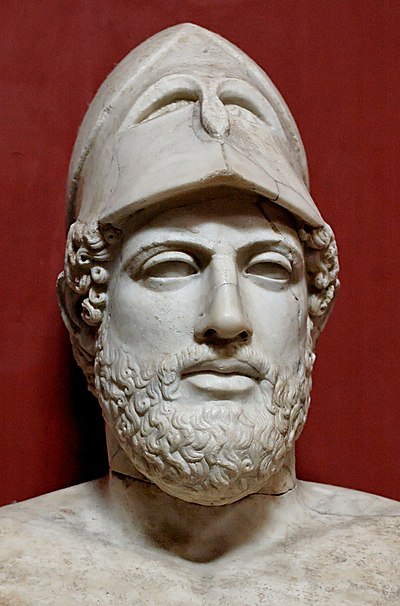
ペリクレス
Pericles
(circa 495 BC? – 429 BC)の像
生い立ち・生涯
ペリクレス: 古代アテナイの政治家と指導者
古代ギリシャの政治の中心地であるアテナイにおいて、ペリクレスはその名を刻みました。
彼は紀元前495年にアテナイで生まれ、その生涯を通じてアテナイの政治や文化に大きな影響を与えました。
彼の生涯を通して、古代ギリシャの政治舞台と彼の指導力に迫ってみましょう。
1. 誕生と家族の背景 ペリクレスは紀元前495年にアテナイで生まれました。
彼の父親はクレイステネスという名の政治家であり、アテナイの政治において影響力を持っていました。
母親のアグリッパはアルクマイオン家の出身で、政治的な結びつきを持っていました。
この家族の背景から、ペリクレスは政治への道を歩むことが予期されました。
2. 政治家としての台頭 ペリクレスは若い頃から政治の舞台に登場し、その才能とカリスマで注目を集めました。
紀元前461年には、アテナイの民主制の中で最高指導者であるストラテゴス(将軍)に選出されました。
彼はその地位を利用して、アテナイの政治と文化の発展に大きく貢献しました。
また、彼の政治手腕は、アテナイの勢力拡大や民主制の強化にもつながりました。
3. 民主主義の擁護者 ペリクレスは民主主義の擁護者として知られています。
彼はアテナイの政治システムを改革し、民衆の参加と権利の拡大に努めました。
彼の指導の下で、アテナイは民主主義の理念をより強固なものとし、市民の参加と自由を尊重する政治体制を確立しました。
これは古代ギリシャの政治史において大きな転換点となりました。
4. 文化のパトロン ペリクレスは政治だけでなく、文化においても重要な役割を果たしました。
彼はアテナイの文化を奨励し、芸術家や哲学者を支援しました。
その結果、アテナイは黄金時代と呼ばれる文化的な繁栄を迎え、古代ギリシャ文化の最盛期を迎えました。
彼の支援を受けた芸術家や哲学者には、プロタゴラスやフィディアスなどがいます。
5. その死と遺産 ペリクレスの政治的なキャリアは、彼の死後もアテナイに大きな影響を与え続けました。
彼は紀元前429年にペストによって没しましたが、その死はアテナイにとって大きな喪失でした。
彼の遺産はその後も続き、アテナイの政治と文化に深い足跡を残しました。
彼の功績は後世にも称賛され、古代ギリシャの政治家としての偉業は不朽のものとなりました。
哲学・思想
ペリクレス: 政治的リーダーシップと哲学の融合
ペリクレスは、古代ギリシャの政治的指導者でありながら、その思想は単なる政治だけに留まりませんでした。
彼の哲学的な考え方は、政治的決断や市民への説得に大きな影響を与えました。
彼の思想の中心には、市民の自由と民主主義の重要性がありました。
1. デモクラティアの理念 ペリクレスは、アテナイのデモクラティア(民主主義)を信奉しました。
彼は市民の自由と参加の重要性を強調し、政治的決定において広範な市民の意見を尊重することを主張しました。
そのため、彼の政治手法は寡頭政治や独裁主義とは異なり、市民の意志を尊重し、市民の幸福と繁栄を最優先に考えました。
2. 法の支配と公正 ペリクレスは法の支配と公正な裁判を重視しました。
彼は裁判所の独立性を保ち、法の下での平等を確保することを重要視しました。
これにより、市民は自らの権利を保護し、不当な扱いを受けることなく、自由な生活を送ることができました。
彼の政策は、法の支配が社会の安定と公正をもたらすことを示唆しています。
3. 市民の教育と啓蒙 ペリクレスは市民の教育と啓蒙にも力を入れました。
彼は市民が知識を持ち、理性的に意思決定できるように、教育制度の充実を図りました。
また、彼は哲学や文学、芸術の奨励を行い、市民が精神的に豊かな生活を送ることができるようにしました。
彼の支援により、アテナイは文化の中心地として輝きました。
4. 市民の自己啓発と公共の利益 ペリクレスは市民が自己啓発し、公共の利益のために行動することを奨励しました。
彼は個人の利益よりも公共の利益を優先することを重視し、市民にその精神を鼓舞しました。
彼の指導の下で、市民は自らの行動が社会全体に影響を与えることを認識し、公共の利益のために努力するようになりました。
5. 民主主義の限界とバランス ペリクレスは民主主義の限界とそのバランスを認識していました。
彼は市民の自由と権利を尊重しつつも、過度の民主主義が混乱や混乱を招く可能性を認識しました。
そのため、彼は強力な指導者としての役割を果たしつつも、市民の参加と自由を保護しました。
このバランス感覚は、彼の政治手法の持続性と成功に大きく貢献しました。
ペリクレスの哲学は、単なる政治的指導者のものではなく、市民の幸福と繁栄を追求する一連の理念の集合体でした。
彼の思想は古代ギリシャの政治と文化に深い影響を与え、その遺産は今なお西洋の政治思想に大きな影響を与え続けています。
特徴
ペリクレス: 古代ギリシャの政治家の特徴
ペリクレスは古代ギリシャの政治の舞台で著名な指導者であり、彼の特徴はその時代のアテナイ政治に深く刻まれました。
彼の独特の性格とリーダーシップスタイルは、彼を一代で最も尊敬される政治家の一人に押し上げました。
彼の特徴を探ってみましょう。
1. 雄弁さと説得力 ペリクレスは非常に雄弁であり、その説得力は時に人々を圧倒しました。
彼の演説はアテナイ市民を動かし、彼の政治的な目標や政策を推進するのに役立ちました。
特に、彼の有名な葬儀演説は、アテナイの民衆に彼のリーダーシップを確固たるものにしました。
2. 民主主義の信奉 ペリクレスは民主主義の信奉者であり、市民の参加と権利の拡大を強く支持しました。
彼は市民の意見を尊重し、彼らの幸福と繁栄を最優先に考えました。
彼の政策は、アテナイが民主主義の理念を実践する一助となりました。
3. 文化と芸術の奨励 彼は文化と芸術のパトロンでもありました。
彼は芸術家や哲学者を支援し、アテナイの文化的な繁栄を促進しました。
その結果、アテナイは黄金時代と呼ばれる文化的な隆盛を迎え、彼の支援を受けた芸術家や哲学者が数多くの傑作を生み出しました。
4. 公正と法の支配 ペリクレスは公正と法の支配を重視し、裁判所の独立性を保ちました。
彼は法の下での平等を確保し、市民が不当な扱いを受けることなく自由な生活を送ることができるように努めました。
その結果、アテナイは法治国家としての地位を確立しました。
5. 戦略的な指導力 ペリクレスは優れた戦略家でもありました。
彼の指導の下で、アテナイはペロポネソス戦争などの戦争に参加し、その勝利を収めました。
彼の戦略は、アテナイの勢力拡大と安定に大きく貢献しました。
ペリクレスの特徴は彼を単なる政治家以上の存在に押し上げ、彼の時代におけるアテナイの政治と文化に深い影響を与えました。
彼のリーダーシップと哲学は、後の時代にも多大なる影響を与え、その遺産は西洋の政治思想に今なお色濃く残っています。
エピソード
ペリクレス: 政治的指導者の逸話
ペリクレスの人生には多くの逸話が残されており、彼の強力な指導力や特異な性格を物語っています。
彼の逸話を通して、古代ギリシャの政治と文化に迫ってみましょう。
1. サラリーマンの知恵 ペリクレスは人々の信頼を得るために、自らの生活を質素に保ちました。
ある日、彼は市場で贅沢品を買おうとしているところを見かけた市民に、贅沢品を買うよりも自分の生活を質素にしてお金を節約すべきだと説得しました。
彼の質素な生活態度は市民の心を掴み、彼の指導力をより強固なものにしました。
2. 賢人の相談 ペリクレスは常に賢人の意見を求め、彼らと議論することを好みました。
ある日、彼は哲学者のアンアクサゴラスに会いに行き、彼の意見を尋ねました。
アンアクサゴラスは「良いリーダーは知恵を持つ人々と議論し、賢明な判断を下すものだ」と答えました。
この逸話は、ペリクレスの知恵を求める姿勢と彼の政治的決断力を示しています。
3. 災害に対する対応 ペリクレスはアテナイがペストに見舞われた際、市民を鼓舞しました。
彼はペストの恐怖と混乱に直面しながらも、市民に対して冷静さを保ち、共に団結してこの危機を乗り越えようと訴えました。
彼のリーダーシップは市民に勇気を与え、アテナイがこの苦難を克服する助けとなりました。
4. 美しい言葉の饗宴 ペリクレスは優れた雄弁家でもあり、その演説は人々を魅了しました。
ある時、彼は市民に向けて美しい言葉の饗宴を開催し、彼の理想とビジョンを分かち合いました。
彼の雄弁さと説得力は市民の心を打ち、彼らを彼の指導の下で共に歩むことに鼓舞しました。
5. 民衆の間での親しみやすさ ペリクレスは民衆の間で非常に親しみやすく、身近な存在として尊敬されていました。
彼は市民との交流を大切にし、彼らの意見や悩みに耳を傾けました。
その結果、市民は彼を信頼し、彼の指導の下でアテナイがより良い未来に向かって進むことに期待を寄せました。
これらの逸話は、ペリクレスが単なる政治家以上の存在であったことを示しています。
彼の人間性やリーダーシップスタイルは、古代ギリシャの政治の歴史に深く刻まれ、彼の時代におけるアテナイの指導者としての地位を確立しました。
エンペドクレス(紀元前490年頃 – 紀元前430年頃)
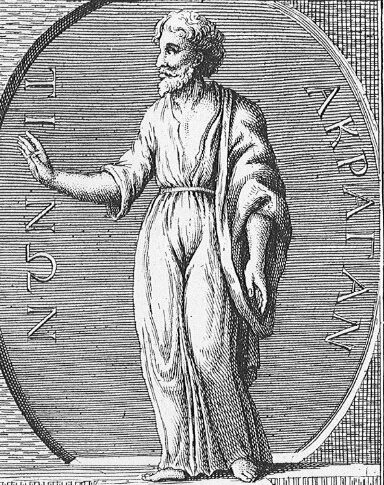
Empedocles
生い立ち・生涯
エンペドクレス: 自然哲学の先駆者
古代ギリシャの哲学者であるエンペドクレスは、自然哲学の先駆者の一人として知られています。
彼の生涯と思想は、古代ギリシャの哲学史において重要な位置を占めています。
1. 生い立ちと教育 紀元前490年頃、エンペドクレスはアクラガスのシチリア島に生まれました。
彼は裕福な家庭に育ち、幼少期から優れた教育を受けました。
その後、彼は自然哲学や数学、天文学などの知識を追求するために旅に出ました。
彼の旅は彼の哲学的思考を深め、後の著作に影響を与えることになります。
2. 自然哲学の発展 エンペドクレスは、自然の根源や宇宙の構造についての理論を探求しました。
彼は万物の根源として「アルケー」を唱え、最初に四大元素(土・水・火・空気)を提唱しました。
また、彼は恒久的な変化の原理を示すために、「愛」と「闘争」の二つの力を導入しました。
これらの理論は後の哲学者たちに影響を与え、自然哲学の発展に寄与しました。
3. 政治的な活動 エンペドクレスは単なる哲学者だけでなく、政治的にも活動しました。
彼はアクラガスの政治的な権力を握り、市民の福祉や政治の安定に尽力しました。
しかし、彼の政治活動は後に失敗し、アクラガスを追放されることになります。
4. 著作と伝説 エンペドクレスの著作は現存していませんが、彼の思想や理論は後の哲学者たちによって引用されています。
特に彼の自然哲学の理論は、プラトンやアリストテレスなどの後の哲学者に影響を与えました。
また、彼の死に関する伝説も残されており、彼が火山の火口に飛び込み自らの命を絶ったというものが有名ですが、その真偽は不明です。
5. 影響と遺産 エンペドクレスの思想は古代ギリシャの哲学史において重要な位置を占めています。
彼は自然哲学の発展に貢献し、後の哲学者たちに深い影響を与えました。
彼の探究心と知的好奇心は、自然の秘密を解明しようとする哲学の伝統を築く上で重要な役割を果たしました。
哲学・思想
エンペドクレス: 自然の根源と四大元素
古代ギリシャの哲学者エンペドクレスは、自然哲学の先駆者の一人であり、彼の思想は古代ギリシャの哲学史において重要な位置を占めています。
彼の思想の中心には、自然の根源や宇宙の構造に関する理論があります。
彼の主要な著作は現存していませんが、後の哲学者たちの引用や註解によって彼の思想が伝えられています。
1. アルケーと四大元素の概念 エンペドクレスは、万物の根源として「アルケー(原理)」を提唱しました。
彼によれば、このアルケーは四つの基本的な要素、すなわち土(地)、水、火、空気からなると考えられました。
これらの要素は宇宙のあらゆるものを構成し、相互作用しながら変化を生み出すとされました。
2. 恒久的な変化と愛と闘争の原理 エンペドクレスは、世界の変化を説明するために「愛」と「闘争」の二つの原理を導入しました。
彼によれば、愛は要素同士を引き合わせ、統一する力であり、闘争は要素同士の対立や衝突から生じる力でした。
この二つの原理が相互作用することで、宇宙は永遠の変化とバランスを保っているとされました。
3. 一体性と多様性の調和 エンペドクレスの思想は、一体性と多様性の調和を強調しています。
彼によれば、四大元素は相互作用しながら宇宙を形作りますが、その中には絶え間ない変化が存在します。
しかし、これらの変化は恒久的なバランスの中で起こるものであり、宇宙全体が調和の中にあるとされました。
4. 知識と無知の限界 エンペドクレスは、人間の知識には限界があると考えました。
彼は人間の感覚や理性に基づく知識は不完全であるとし、真理についての完全な理解は不可能だと主張しました。
そのため、彼は謙虚さと探求心を重視し、知識の追求を通じて人間が自然の秘密に迫ることが重要だと考えました。
5. 影響と遺産 エンペドクレスの思想は後の哲学者たちに深い影響を与えました。
彼の自然哲学の理論は、プラトンやアリストテレスなどの後の哲学者たちによって引用され、議論されました。
特に、彼の四大元素説は古代ギリシャの自然哲学の基礎となり、中世やルネサンス期の自然哲学にも影響を与えました。
エンペドクレスの思想は、古代ギリシャの哲学史において重要な一翼を担い、自然哲学の発展に大きく貢献しました。
特徴
エンペドクレス: 自然哲学の革新者
エンペドクレスは古代ギリシャの哲学者であり、自然哲学の革新者として知られています。
彼の特徴的な思想やその影響力について見てみましょう。
1. 自然の根源の追求 エンペドクレスは自然の根源についての問いを追求しました。
彼は万物の根源として「アルケー(原理)」を提唱しました。
これは、全てのものが生じる根本的な要素であり、彼によれば、四つの基本的な要素である土、水、火、空気からなりました。
彼の思想は、物質の起源とその変化に関する理論に大きな影響を与えました。
2. 四大元素説の確立 エンペドクレスの最も有名な貢献の一つは、四大元素説の確立です。
彼は世界のあらゆるものが四つの基本的な要素から構成されると主張しました。
それぞれの元素は特定の特性を持ち、相互作用することで宇宙が形成されるとされました。
彼の理論は後の自然哲学者たちに大きな影響を与え、中世の自然学や近代科学の発展にも影響を及ぼしました。
3. 恒久的な変化の理論 エンペドクレスは、恒久的な変化の理論を提唱しました。
彼によれば、宇宙は絶え間ない変化の中にあり、その変化は愛と闘争という二つの原理によって説明されます。
愛は要素を結びつけ、一体化させる力であり、闘争は要素同士の対立や分離を引き起こす力でした。
この二つの原理が相互作用することで、宇宙の変化が維持されるとされました。
4. 知識の限界と謙虚さ エンペドクレスは知識の限界を認識し、謙虚さを重視しました。
彼は人間の理性や感覚に基づく知識は不完全であると考え、真理についての完全な理解は不可能だと主張しました。
そのため、彼は人間が自然の秘密に迫ることは重要だが、完全な理解を求めることは無謀であると考えました。
この謙虚さと探求心は後の哲学者たちにも影響を与えました。
5. 影響と遺産 エンペドクレスの思想は古代ギリシャの哲学史において重要な位置を占めています。
彼の四大元素説や恒久的な変化の理論は後の哲学者たちに大きな影響を与え、自然哲学の発展に貢献しました。
彼の探究心と知的好奇心は、自然の秘密を解明しようとする哲学の伝統を築く上で重要な役割を果たしました。
エピソード
エンペドクレス: 自然の秘密に挑む冒険者
エンペドクレスの生涯には、彼の哲学的な思索や行動を象徴する数々の逸話が残されています。
これらの逸話は彼の独創性や勇気、そして知的好奇心を示すものばかりです。
1. 火山への挑戦 ある日、エンペドクレスは火山の火口に飛び込むという無謀な挑戦を試みました。
彼は火山の内部に何があるのか、火や溶岩の力がどのようにして自然界を形作っているのかを理解しようとしたのです。
彼は自然の秘密を解き明かすために、その身を危険に晒しました。
2. 太陽の奇跡 ある時、エンペドクレスは太陽の謎について考え込んでいました。
彼は太陽がどのようにして空に浮かび、夜にはどこへ去るのかを知りたがっていました。
ある日、彼は太陽の動きを追跡するために長い旅に出ました。
彼はその過程で多くの新たな発見をし、自然の秘密に対する彼の好奇心を満たすこととなりました。
3. 光と影の謎 エンペドクレスは、光と影の謎についても興味を持っていました。
彼は光がどのようにして物質を照らし、影がどのようにして形成されるのかを理解しようとしました。
ある日、彼は光と影の現象を研究するために暗闇の中で一人で過ごしました。
彼の観察と実験は、後の光学や物理学の発展に影響を与えました。
4. 自然の秘密に迫る冒険 エンペドクレスの逸話は、彼が自然の秘密に迫るために多くの冒険をしたことを示しています。
彼は危険を冒し、知識を追求するために旅をし、実験を行いました。
彼の勇気と探求心は後の哲学者たちにも影響を与え、自然の秘密を解き明かすための知識の基礎を築きました。
5. 影響と遺産 エンペドクレスの逸話は彼の時代の人々に強い印象を与え、彼の知識の追求と冒険の精神は後世にも伝えられました。
彼の逸話は、自然の秘密を追求する哲学者たちの模範となり、彼の思想は古代ギリシャの哲学史において永遠の輝きを放っています。
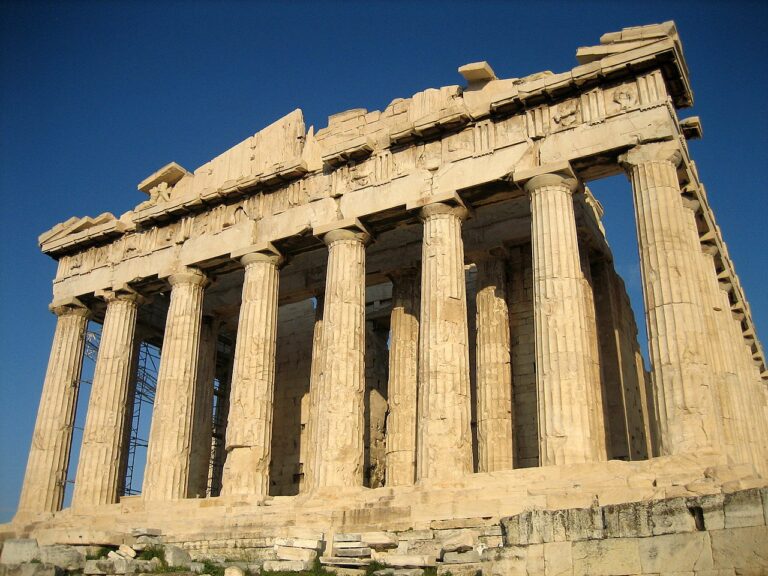
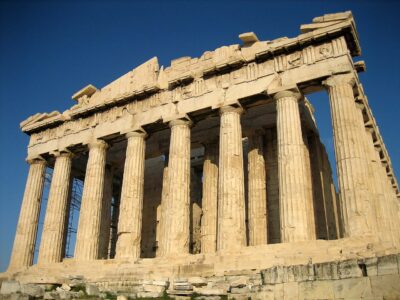
コメント